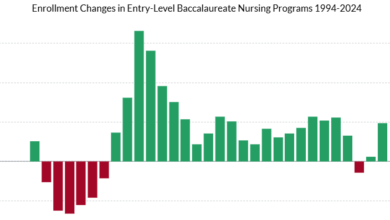‘Landmark victory’ as new sickle cell drug approved

Sickle cell patients and campaigners have celebrated the approval of a “remarkable” treatment for the disease by the National Institute for Health and Care Excellence (NICE).
NICE has today (3 May) recommended voxelotor, a drug which can treat haemolytic anaemia caused by sickle cell disease, for use on the NHS in England following a reduction in its price.
“This decision from NICE has brought a great deal of hope, and we are profoundly grateful that this day has arrived”
John James
The organisation previously did not recommend the use of the drug in 2023.
However, this decision was subsquently challenged by pharmaceutical company Pfizer, the developer of the drug which is also known as Oxbryta, and the Sickle Cell Society.
Following the new final draft guidance from NICE, NHS England confirmed that it would begin offering the treatment from today and that up to 4,000 patients aged 12 and over with sickle cell disease could benefit.
To receive voxelotor, the patient must be ineligible for, or intolerant to, hydroxycarbamide – another treatment for symptoms associated with sickle cell – or find that this treatment is “insufficiently effective”.
Voxelotor, which is taken daily in tablet form, is a haemoglobin S (HbS) polymerisation inhibitor that can be used to treat haemolytic anaemia caused by sickle cell disease.
NICE said Pfizer’s reduction in the price of voxelotor “mitigated” some “uncertainties” it had in previous draft guidance around its wide population effectiveness and commercial viability.
These previous concerns, NICE’s earlier ruling said, meant the drug would not be approved, even when balanced against its ability to reduce health inequalities for underserved sickle cell patients, who are predominantly from Black backgrounds.
What is sickle cell disease?
Sickle cell disease is a genetic red blood cell condition. It affects haemoglobin and causes red blood cells to form in an abnormal, crescent (or sickle) shape.
This prevents the efficient movement of oxygen around the body and causes build-ups of blood cells. In turn, this can cause respiratory difficulties, severe pain and fatigue.
Around 17,500 people in the UK have sickle cell disorder and it predominately affects those from African and Caribbean backgrounds, according to the Sickle Cell Society.
Speaking today, NICE director of medicines evaluation Helen Knight said: “This is great news for people with sickle cell disease, particularly given the health inequalities experienced by people with the condition.
“Throughout our appraisal of voxelotor the independent committee has always considered that it has the potential to address the need for effective treatments for [sickle cell disease], as well as address NICE’s aim of reducing health inequalities.”
The new guidance, which approved the drug, made voxelotor the first treatment specifically for haemolytic anaemia due to sickle cell which NICE has approved for routine use in the NHS, according to Pfizer.
Patients and advocates have hailed the new drug’s approval as a “landmark victory” for the sickle cell community.
John James, chief executive of the Sickle Cell Society, said it was a “significant milestone” in care for patients with the disease, and in addressing a long-standing issue of poor access to treatment.
“This decision from NICE has brought a great deal of hope, and we are profoundly grateful that this day has arrived,” said Mr James.
“It is a deeply life-changing and celebrated moment for people living with the condition.
“Users of voxelotor have shared with us remarkable stories of improved quality of life, reduced pain and substantial increases in energy levels.
“This has allowed them to work, connect with friends and family, improve their physical and mental health – and generally achieve a quality of life the rest of us often take for granted.”
Sickle cell patients have historically faced difficulties accessing treatments, a lack of nurse and medical specialists and, Mr James said, an overall underinvestment in improvements to care.
He added: “For today we celebrate this milestone and commend everyone who tirelessly contributed to it.

John James
“Tomorrow we’ll continue to advocate for a future where new treatments for sickle cell are not just a once in a lifetime occurrence for people living with the condition.”
NHS England welcomed NICE’s approval of the drug for routine use, in particular for its value in reducing healthcare inequalities.
Professor Bola Owolabi, director of the health service’s National Healthcare Inequalities Improvement Programme, said it represented a “significant step forward” for sickle cell patients.
“We are proud to make this new treatment available on the NHS,” said Professor Owolabi.
“It could help thousands of patients living with sickle cell disease across the country to have a higher quality of life and experience fewer side effects, and represents a significant step forward in addressing the healthcare inequalities experienced by some of our communities.
“It is vital that we continue to get new drugs into the hands of NHS clinicians to improve the lives of people living with sickle cell disorder.”
NHS England chief executive Amanda Pritchard added: “Sickle cell disease can have a huge impact on people’s lives, and this is one of the biggest breakthroughs in treatment in recent decades, so I know how much this announcement will mean for thousands of people across the country.
“The NHS has worked hard to make this life-changing treatment available at a fair price for the taxpayer, as part of our wider drive to improve the quality and experience of care for sickle cell patients, and tackle the stigma and inequalities they have told me they face.
“We are proud to make this new treatment available on the NHS”
Bola Owolabi
“By improving the quality of life and reducing the need for hospital care, this new treatment option also has the potential to free up doctors, nurses and other clinicians to better support other patients.”
The NICE final draft guidance is subject to consultation, with the final guidance anticipated in early June.
In the meantime, NHS England will make the treatment available via interim funding through the Innovative Medicines Fund.
Susan Rienow, Pfizer UK country president, further said: “We are delighted with this positive NICE recommendation and interim funding through the Innovative Medicines Fund, which will give eligible patients in England immediate access.
“We have remained committed to ensuring this treatment would reach eligible patients and we fully recognise the significance of this milestone for the sickle cell community.
“More broadly, we will continue to work with the community and other stakeholders, to ensure we address the health inequalities that exist to help improve care and health outcomes.”
Following the approval of voxelotor, NICE is due to meet later this month to reconsider another sickle cell treatment, exagamglogene autotemcel, which it initially decided not to recommend.






